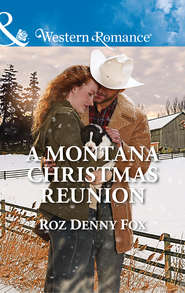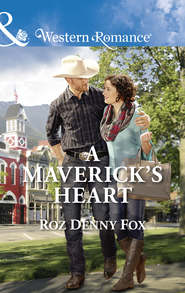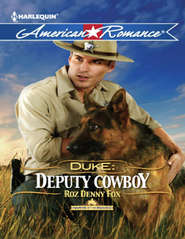По всем вопросам обращайтесь на: info@litportal.ru
(©) 2003-2024.
✖
Married in Haste
Автор
Год написания книги
2018
Настройки чтения
Размер шрифта
Высота строк
Поля
“I’ll phone you at school as soon as I finish my meeting,” Elliot told her sternly.
Abby wrinkled her nose at the buzzing phone as she hung up.
CHAPTER TWO
WHILE HER CAR IDLED off the morning chill, Abby was pleased to see sun chasing off the clouds. She hoped this would turn out to be a nice day. For February, Seattle enjoyed relatively mild temperatures.
Her breakfast duty started at seven. Their school had so many single moms and working parents, they’d long since instituted a hot breakfast plan five days a week. If she’d thought sooner, Abby would have offered Blair the use of her car. She wouldn’t need it for a week, and Ben could as easily pick her up at school. Besides, it would be easier to talk to Blair about her plans. She was less…uncompromising than Elliot.
As she approached the school, Abby scanned the line of cars pulling through the bus lane to drop students at the cafeteria. If she saw her brother and his wife, she’d still make the offer. Unfortunately, the Drummonds’ aging van wasn’t among those parked in the circular drive, so Abby drove by and parked in the faculty lot.
She’d missed them, she discovered as soon as she entered the building. Her nephews were lying in wait to pounce on her. Nine-year-old Noah and Michael both had missing front teeth, which made what they said hard to understand. Ultimately Abby deduced that they were regaling her with the latest antics of their beloved boxer, Ruffian. “You know what, Aunt Abby? Ruffian chewed holes in Daddy’s best tie this morning.”
“Yeth,” agreed one of the younger twins. At seven, Brad still lisped. He tugged Abby’s jacket, wanting to be heard over Reed, his more gregarious twin. “Mama covered our ears, ’cause Daddy said bad words.”
“No kidding?” Abby knew she should let remarks of that sort slide rather than draw attention to them. But it seemed so…not like Elliot. She paused to consider whether or not he might be exceptionally upset by her news. Or were things rocky at his church? She knew from past history that working with congregations wasn’t always sweetness and light. Ministers were often unduly pressured by either their flocks or their governing boards. Maybe Elliot and Blair needed a break more than she’d assumed. What if they were really counting on her for next week?
Blair had been vague about their plans, but still…
Friends of the boys called to them. True to their fickle natures, her nephews abandoned Abby and hurried off to line up for chow with their pals.
Other kids circled around her. Abby rarely lacked the company of kids during her cafeteria or playground duties. Her attention wandered to a group entering the room. Ben’s nieces were among them. Abby hadn’t seen Erin and Mollie with the breakfast bunch before.
She worked her way in their direction, deciding to ask if there’d been a change in their mom’s schedule.
“Girls, hi.” Abby spoke to the girls even as her eyes strayed to a rowdy collection of fourth-and fifth-grade boys who seemed to be getting out of control at one of the tables.
“Ms. Drummond, how come you’re on morning duty?” Erin exclaimed.
“All teachers rotate morning and after school, hon. I was just thinking I hadn’t seen you and Mollie here before.”
Mollie danced from foot to foot until Erin stilled her. “Mommy’s insurance office went to flex time.” The eight-year-old’s elfin face grew serious behind her wire-rimmed glasses. “Mollie and I have to get up earlier now.”
“I don’t like it,” Mollie interjected.
Erin, the more sedate of the two, placed a firm hand on her younger sister’s shoulder. “We don’t really mind. It means Mommy’s home at two-thirty when school lets out.”
“Well, that’s good. So you’re no longer going to Mrs. Scott’s?”
“She moved to California to live with her son.”
Mollie piped up again. “Mrs. Scott said her old bones don’t like Seattle rain.”
“Ah. Last year, I do remember her having problems with arthritis. Well, it seems your mom’s new schedule came at a good time. Excuse me, girls. I need to go chat with those boys. In case I don’t get back to you, have a great day.”
Abby had taken maybe five steps toward the disruptive boys when, without warning, the cafeteria floor shifted under her feet and sent her reeling. Simultaneously her stomach tightened, then dropped. She lurched sideways, right, then left, as if she’d stepped on a carnival ride. A Tilt-A-Whirl. Abby grabbed for a chair only to have it bob crazily away. As she tried righting herself, another jolt threw her to her knees. All around her, kids began to scream and cry.
For a moment, an unnamed panic seized Abby. Her heart raced as she crawled across the bucking floor. She forced herself to climb to her feet.
Food trays flew off nearby tables. Chairs toppled. Kids scrambled over one another. Automatically, Abby clutched a whistle swinging from a cord around her neck. She blew two sharp blasts. Stretching out her arms, she caught a bunch of kids who hurtled past her. “It’s an earthquake,” she shouted, realizing what was happening. “Remember our drills! Jason Bingham, stop in your tracks. All of you! Listen to me.”
This wasn’t the first quake in Abby’s career. Oddly, it was the noisiest and seemed to last longer than most. Her attempts to achieve order went unheeded.
The cook and cashier exploded out from their stations. Abby’s counterpart, a fourth-grade teacher, began herding older kids out the back exit while yelling something Abby couldn’t distinguish. A third shrill blast of her whistle failed to cut through a horrendous rumble.
As sheer pandemonium erupted and inanimate objects bounced past her, Abby’s training kicked in. Two facts struck her—the rumble had turned into a roar, and the shaking, which had always faded quickly in past earthquakes, was splitting wide cracks in the tile floor. Tables slid in one direction, then the other. Some toppled. Dust billowed from the cracks, making everyone cough and choke.
“Children, line up by twos,” Abby said between gagging. “We’re going outside just like we’ve practiced. Leaders, head for the middle of the playground, away from anything that might fall from the building. Stop screaming! I know you’re scared. You older kids, hold hands with someone younger.” She had to shout to be heard. And her own stomach pitched as fear tried to take hold. She spat out grit.
When she lined up the children closest to her, more converged from all corners of the room. Their copious tears, frightened eyes and ashen faces added to Abby’s mounting urgency. Off to her right, a row of pots fitted in a special warming table buckled, split, overturned and spread hot oatmeal, dollar pancakes and boiling syrup across the floor.
Hustling the first of her brood over the front threshold, Abby flinched and ducked to avoid wildly swinging light fixtures overhead. Any moment, she feared, one or all might crash down on the rows of students. Until right now, she’d never thought about how many kids ate breakfast at school. She began counting heads as sobbing, shivering groups exited the building.
“There’s safety in being orderly,” she hollered above the deafening roar. “I want everyone to get a buddy. Walk fast, but don’t run. If you run, you may fall. Once you’re outside, move away from the walls but not toward the street or parking lot.” As she spoke, two windows on the north side of the cafeteria ruptured. The front bumper of a blue Ford that must have been parked beside the cafeteria had obviously jumped the curb. Slivers of glass rained everywhere like glittering icicles.
Ms. Fielding, another teacher, dodged a ceiling tile as she led her group of children toward an exit. Abby scooped two of the smallest kids into her arms. She set them outside, out of harms’ way, and in so doing took a direct hit from the heavy door that suddenly swung shut. Terrified, she watched the metal casing crumple as if made of paper. The door splintered, sending a new wave of fear through the kids trapped inside. Bawling, they trampled over those near the front of the line.
Abby forcefully shoved them away from falling debris. “About face, everyone!” she commanded. “We’ll use the side emergency exit.” Herding the remaining few, ranging in age from six to twelve, the length of the cracking, groaning building was no easy feat. Inside her head a hollow voice chanted. Why doesn’t the shaking stop? Lord, please, it can’t go on much longer.
It felt as if an eternity had passed before she reached the side exit, and wrenched it open. Abby knew they’d lost power when the door sprang open without emitting the piercing squeal that told the world she’d breached security. She doubted anyone else noticed or cared. Outside, the air was filled with wailing sirens, ringing church bells, barking dogs and earsplitting car alarms. The sky was brown with floating debris.
Keening, shaking children fell to their knees, all trying to make sense of the disorder. There was confusion everywhere. Bricks tumbled from the second story, splitting the walkway circling their newly constructed gymnasium. Asphalt beneath the playground equipment seemed alive as it puckered and broke apart. A river of water zigzagged between buildings. “Kids, stay away from that water,” Abby shouted, veering her last charges to higher ground. “We don’t know if a water main inside the building broke, or if that’s sewage from the bathrooms.”
Teachers and students, all looking shell-shocked, attempted to band together in the center of the playground. Abby began collecting her nephews and Ben’s nieces. She checked each child for injuries before she allowed herself a deep, calming breath.
“Where’s the sun gone?” Erin asked in a frightened voice. Until then, Abby hadn’t noticed that an ugly ecru sky had replaced the earlier blue. A thick layer of smoke or dust or both thickened the now still air. Blessedly, the horrid rumble had begun to recede, and the shaking was slowly subsiding. Disaster sirens didn’t let up their howling.
Glancing at her watch, Abby couldn’t believe that minutes, not hours, had passed. She tapped her watch to see if it’d stopped. But it was seven-fifteen the last time she’d looked, just before crossing the cafeteria to greet Erin and Mollie. Now her watch said twenty-three minutes after the hour. All this chaos occurred in less than ten minutes?
Mr. Conrad, the school principal, a slightly stoop-shouldered man who’d announced his plans to retire at the end of this school year, worked his way among his scattered staff. Usually impeccable, he looked thoroughly disheveled.
Abby had to peel Brad, Reed and Mollie away from her so she could go have a word with her boss.
“It’s not good news,” he said in a hushed voice. “The university seismology lab is saying this quake was 8.0 on the Richter scale. The West Seattle Bridge and parts of the viaduct along the waterfront have collapsed. No telling how many of these kids who were dropped off early have parents buried in that rubble.”
Abby’s heart did a double flip. Bile rose to gag her. Practically anyone headed downtown after leaving the school crossed that bridge. “What about the floating bridge into the city?” she asked, unclenching her teeth to speak.
Conrad hiked a shoulder. “I only got sketchy reports before I had to evacuate the main building. Our job, Abigail, is to calm the students until we get specific information on the whereabouts of their families.” He sighed. “It might be a selfish reaction, but why couldn’t this have waited until next week when school’s out for spring break? Then parents would’ve had the responsibility that’s fallen to us.”
Abby thought about her plans for spring break, and a shiver rushed up her spine. Had her selfish decision brought God’s wrath?
Don’t be ridiculous!
She shrugged off the childish thought as fast as it popped into her head. A counselor way back when had made her see that her parents’ accident was nobody’s fault. She’d believed, as kids often do, that she’d been somehow to blame. The counselor had convinced her acts of God weren’t caused by human deeds.
Beyond her, Mr. Conrad was saying, “No, children. We can’t let you go into your classrooms. Remember our earthquake drills? We stay out in the open until the fire department gives us an all-clear.” Numerous hands shot up, and the principal patiently answered each and every question. The smaller kids huddled inside their jackets looking dazed. A fifth-grader, whose teeth chattered, enquired about aftershocks.
Aftershocks. Abby wondered how many kids knew they could be as devastating as the original quake. If the aftershocks were big enough, already damaged buildings and bridges could shake apart. Secondary quakes often delayed rescue attempts, too.











